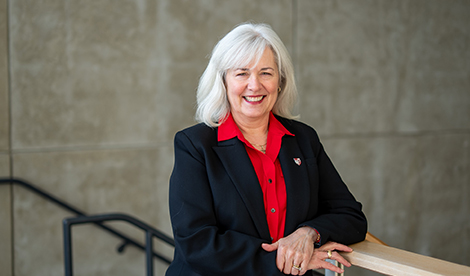News
Looking for the latest news?
Dean of the School of Nursing Interviewed on Flexible Nursing Programs

Dr. Annemarie Dowling-Castronovo was interviewed by the Rochester Business Journal for a story on Rochester colleges expanding flexible nursing programs to meet demands of students.
Here is the excerpt from the RBJ story on Roberts Wesleyan University weaving in flexibility into nursing programs:
“We’re working together to meet students where they’re at,” said Annemarie Dowling-Castronovo, PhD, RN, Dean of the School of Nursing at Roberts Wesleyan University. “We’re maintaining our structured standards while weaving in flexibility.”
The school’s traditional baccalaureate in nursing program has a legacy of flexibility and innovation Dowling-Castronovo says. In recent years the institution has built on that by increasing the selection of courses that are offered both online and hybrid and creating a part-time study plan that can be individualized based on a student’s situation.
“Our nursing students come from all walks of life,” Dowling-Castronovo said. “We’re finding that many of them juggle family responsibilities and existing jobs, whether or not they’re already a registered professional nurse, and financial constraints are at a different level than years ago.”
The university also recently partnered with Finger Lakes Performing Provider System on the Career Pathways Training (CPT) Program, a state-funded program designed to address workforce shortages in health, behavioral health, and social care sectors across the state.
Through this program, tuition and education-related expenses, including textbooks, most supplies, and other academic fees are covered with free financial aid for eligible participants to pursue education and training in one of 13 high-demand health, behavioral health, or social care roles, including nursing.
Roberts’ R.N. to B.S. degree program, which is 100% online and takes 12-24 months to complete, is one of the programs eligible for the benefits of the CPT Program.
Participants are required to complete their education and training by Spring 2027 and then commit to three years of full-time employment with a New York State Medicaid-enrolled provider that serves at least 30 percent of Medicaid members and/or uninsured individuals, of which there are many in the Rochester-region Dowling-Castronovo notes.
Dowling-Castronovo says there are many reasons RNs who do not have a bachelor’s degree can benefit from going back to school to earn their degree, including increased pay and the ability to become certified in a specialty area, such as gerontological nursing.
“Overall, it brings that nurse into a higher level of critical thinking and problem solving that’s really needed in a complex health environment,” she said.



